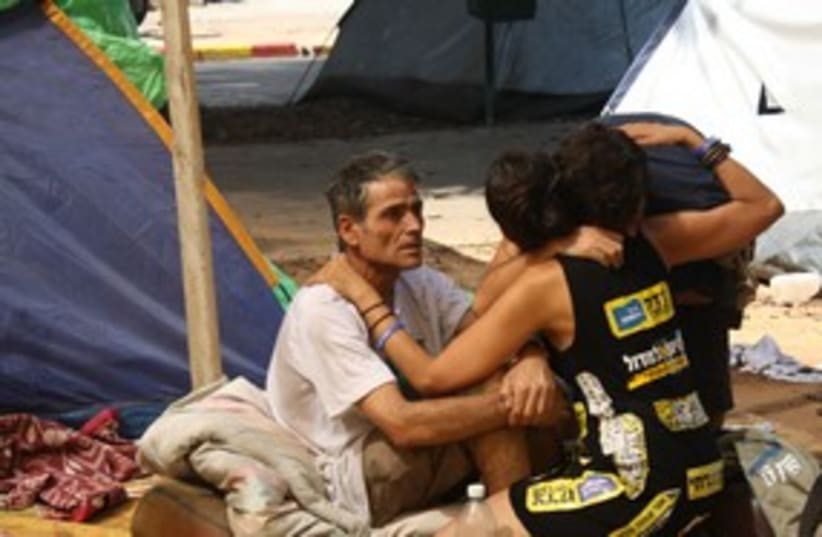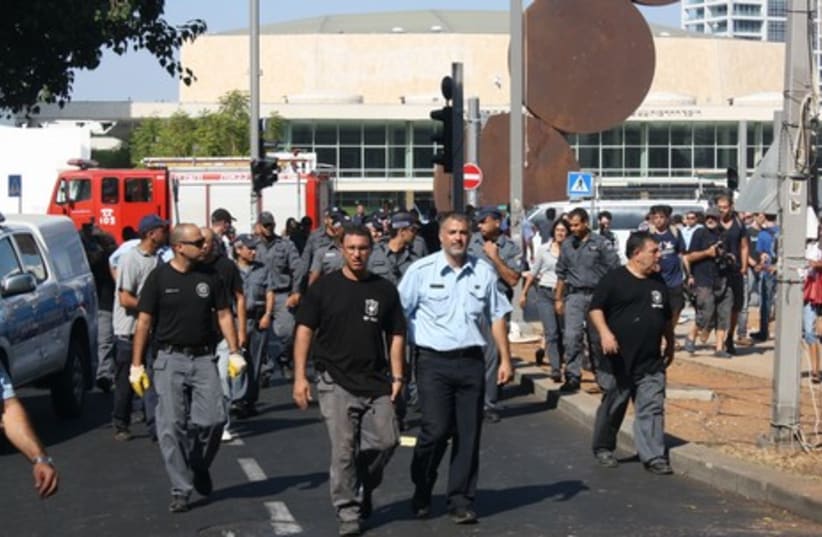
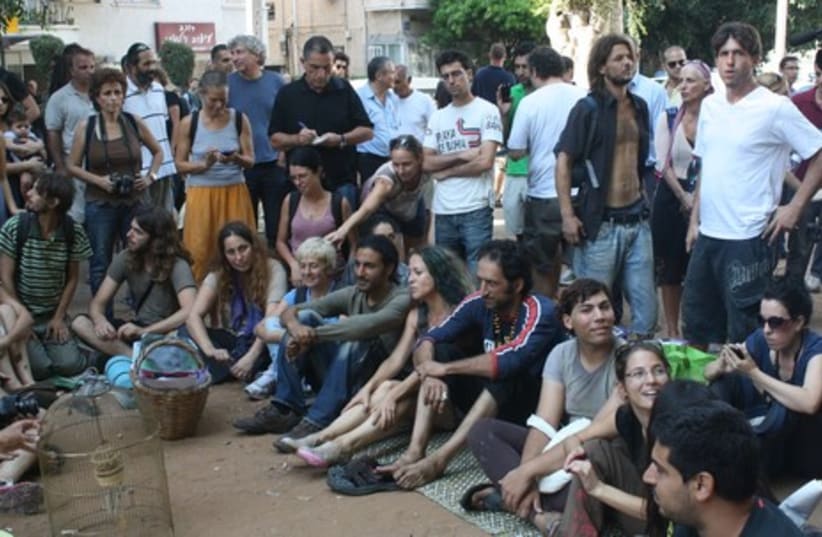
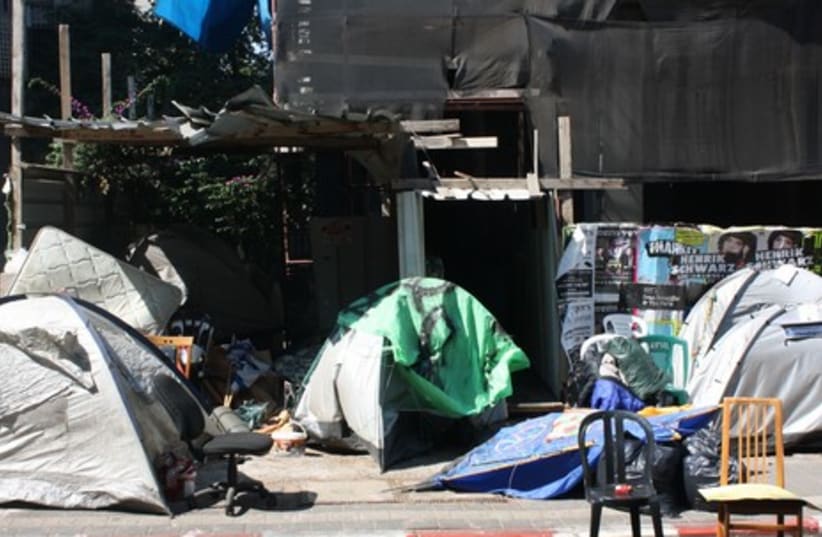
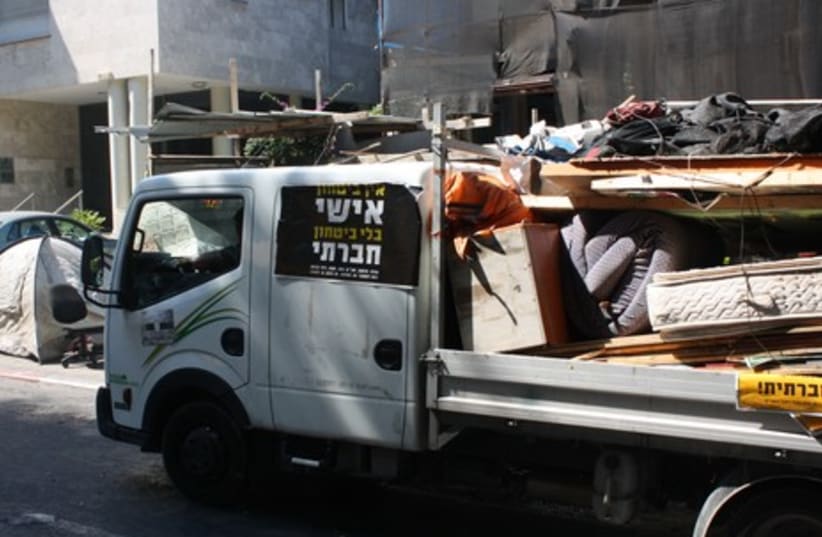
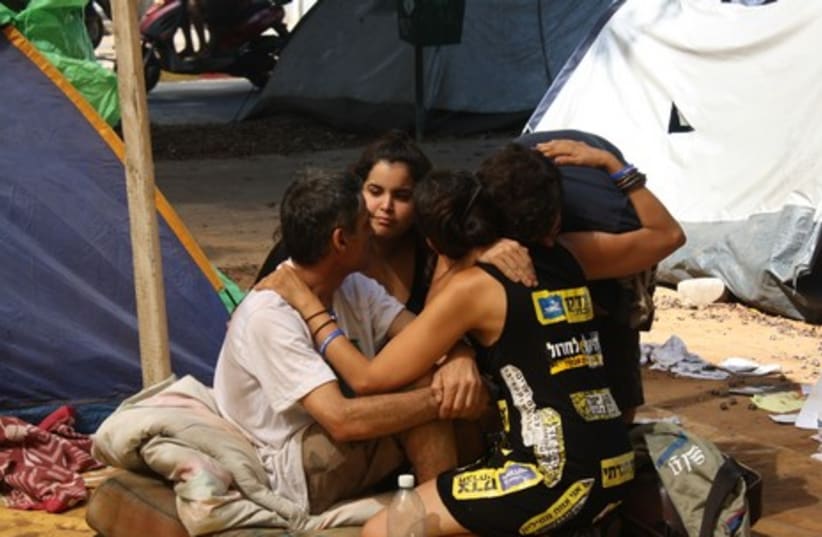
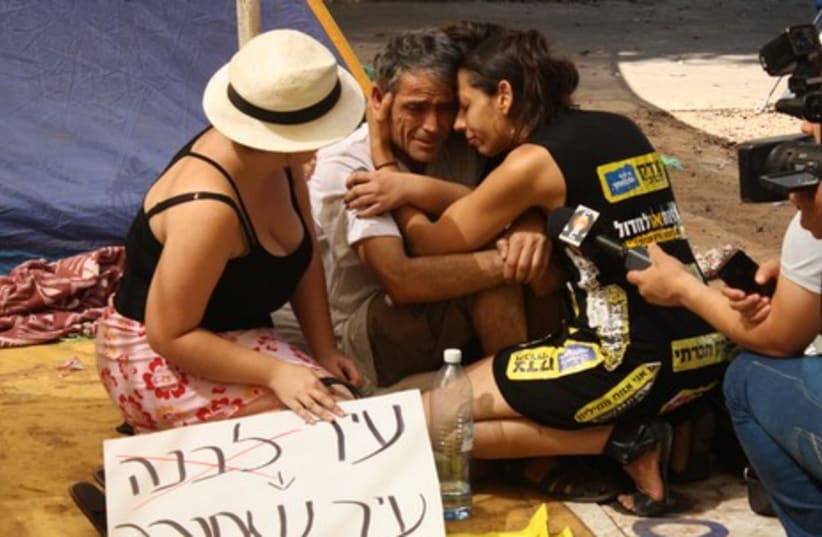
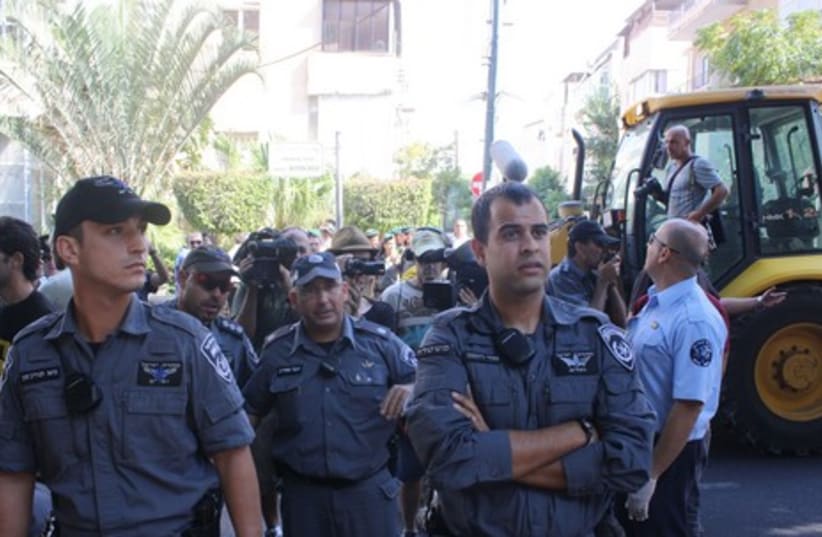
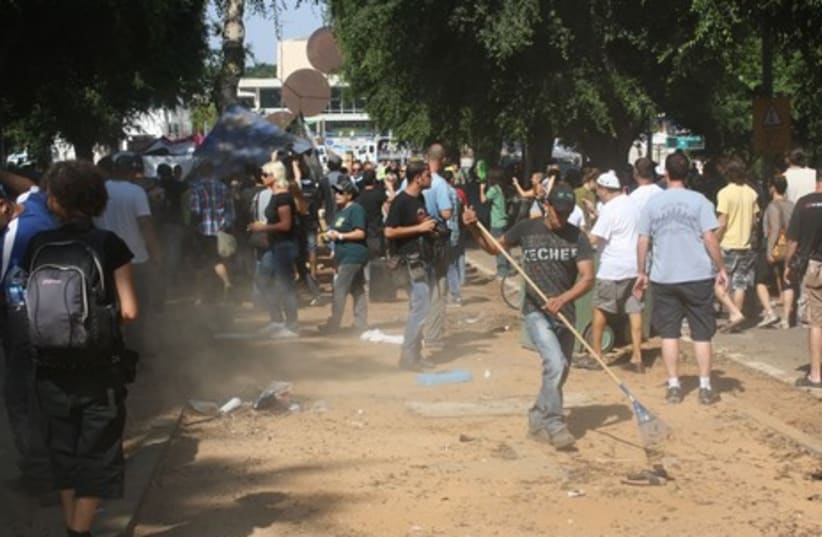
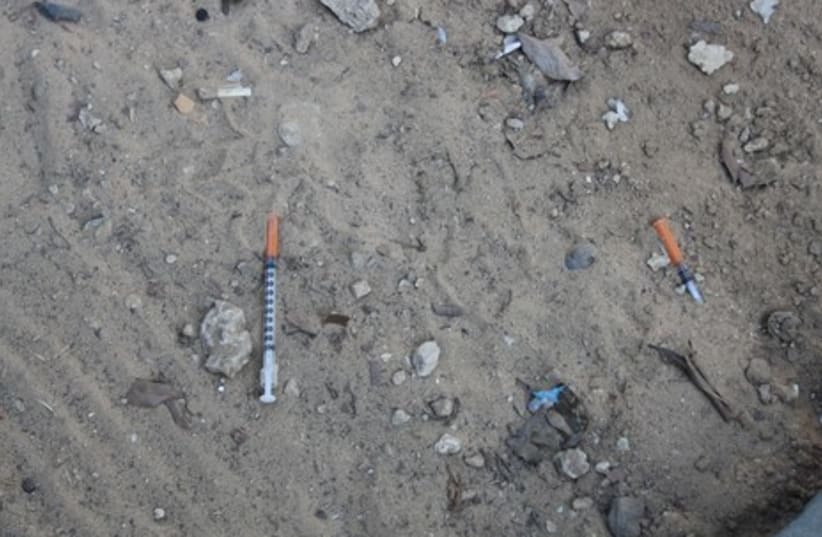
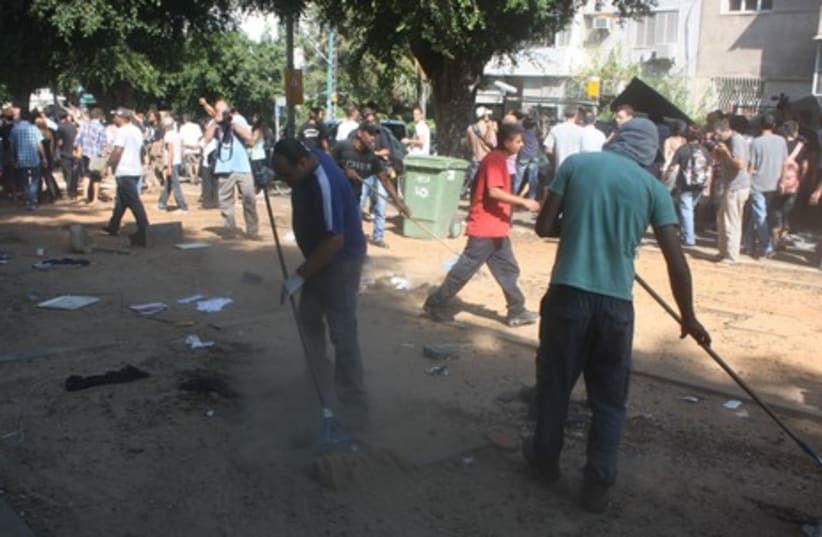
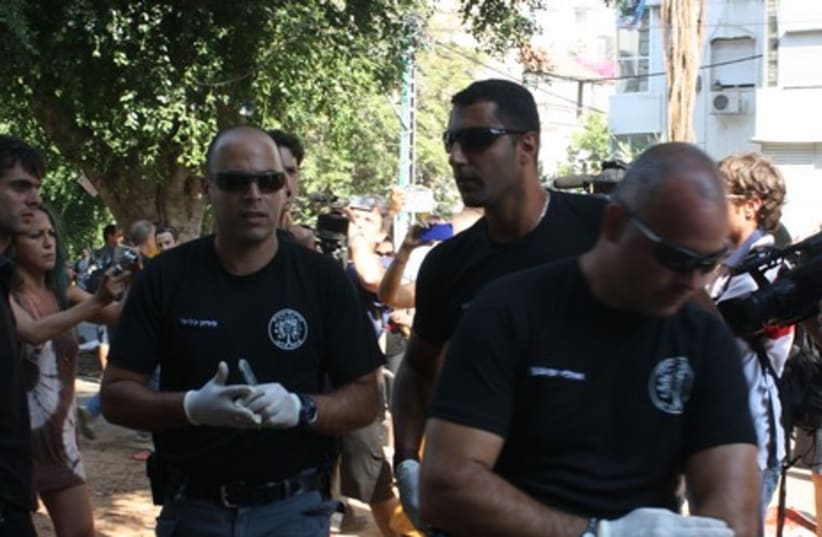
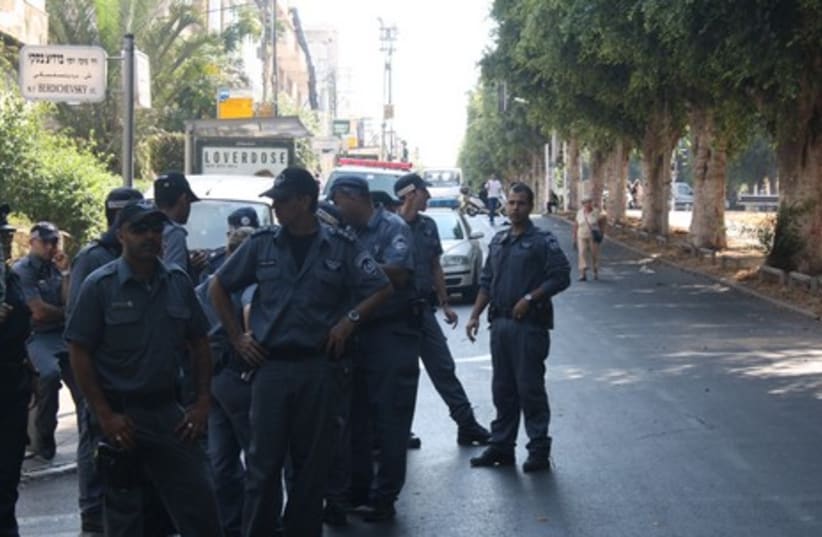
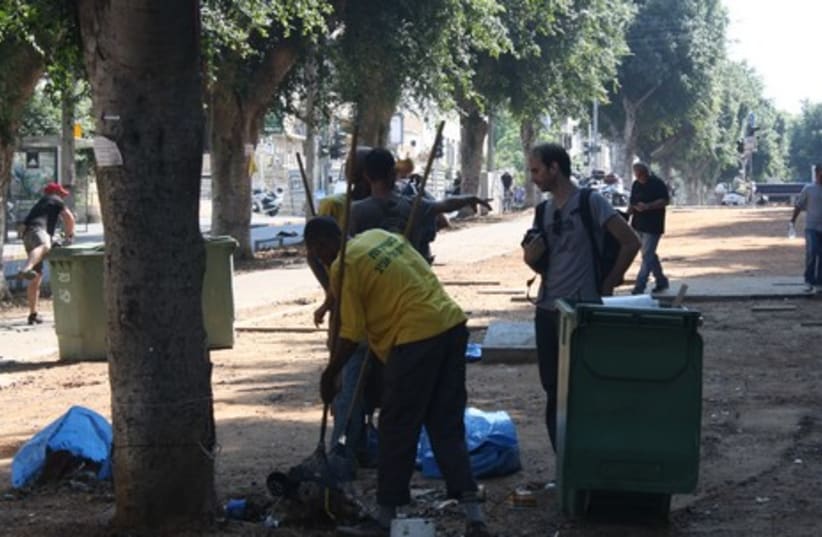
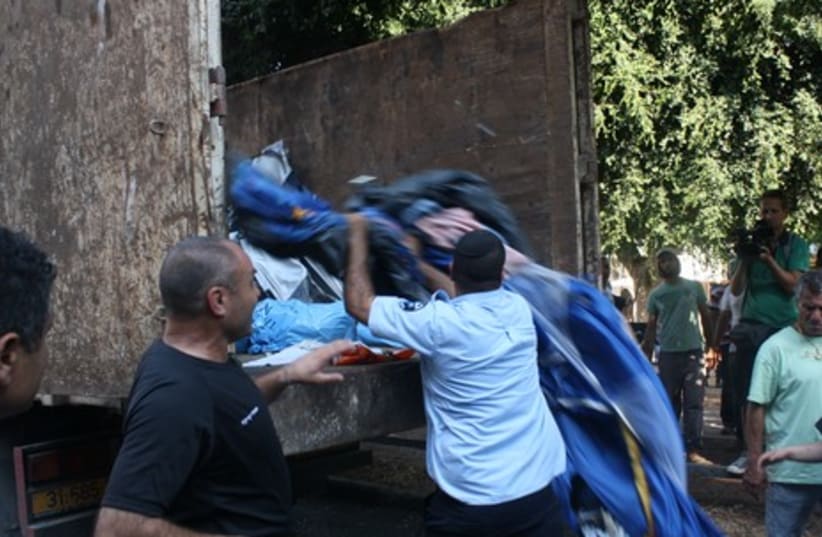
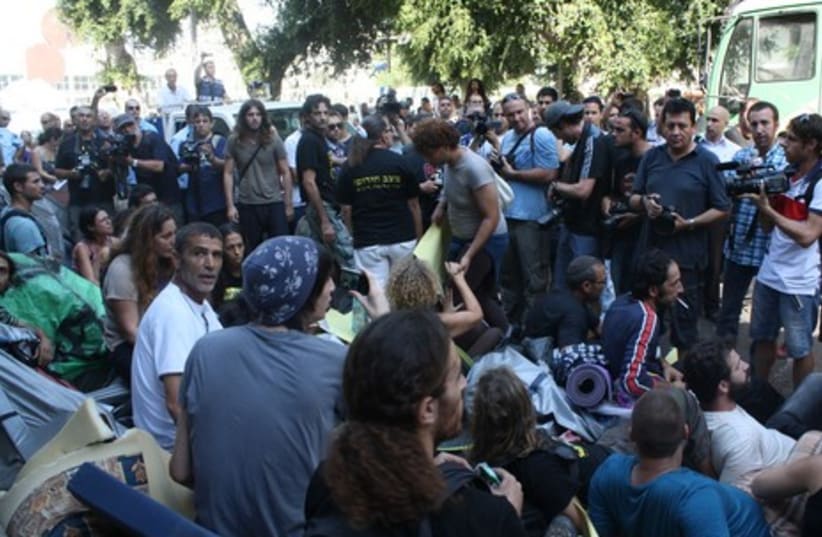

The long-expected eviction of the Tel Aviv tent cities began early Monday morning, when police and municipality clerks arrived at Levinsky park tent city around 6 a.m., and managed to evict the campsite’s residents in less than 10 minutes. They then moved on to the campsites on Nordau and Ben- Gurion boulevards in the north of the city, also meeting scant resistance.Two people were arrested for disturbing the peace during the evacuation of the Levinsky tent city, which has been home to a population of mainly homeless drug addicts and African migrants. After the eviction was completed, city clerks put up a small fence around the area, to prepare for landscaping to repair the site.The scene on Rothschild Boulevard was more lively, perhaps due to the presence of a large amount of journalists and onlookers. Nonetheless, within a little over half an hour the eviction of the last remaining segment of the tent city between Hashmonaim and Marmorek streets was complete.RELATED:Rothschild camp cleared after court denies injunctionTrajtenberg C'tee: 'Protest experts didn't read report'Ahead of the eviction of Rothschild, residents of the tent city, most of whom said they are homeless and don’t have access to housing, vowed to remain at the site no matter the cost, while other residents said they must peacefully pack up and leave before the police arrive.In the end, most of the crowd was on the scene when police shut off the one block section of Rothschild to traffic and began the eviction. Within moments, a few dozen riot police and border patrolmen arrived to clear the way for municipal clerks who made quick work of the remnants of the tent city, tossing the structures into dump trucks while African migrants hired by the city cleaned up behind them, taking orders from Israeli Arab contractors.“Did you see how they came here, with what brutality they did this? We were ready to leave on our own and everything was ready for us to leave,” Victor Maimon, a homeless man living at the site for well over a month said following the eviction.“Over these 80 days we built a community here, over the course of 80 days, the mayor tried to shut us up time and time again. Today we are showing that they will not push us out of this city by force,” shouted Shai Ziv, standing arm-in-arm with residents of the city shortly after the eviction was carried out.Yoav Fekete, a 27-year-old activist who said that he had been volunteering to help homeless people at the campsite, said that in regard to those forced to leave the campsite on Monday “we will work to help these people find new places to live. These are people who have nowhere to go and if they are forced to leave they will be sleeping on park benches in the city.”Monday’s evictions came shortly after the Tel Aviv District Court rejected an urgent request filed earlier that morning by 16 members of the Rothschild Boulevard protest encampment, who had asked for an injunction to delay evacuation of a section of the protest tents.The petitioners had asked for an 80-meter section of the encampment between Marmorek and Hashmonaim streets, which they dubbed “the Holy of Holies of the protest movement” to be left standing.They also requested that the court order the municipality to permit several homeless protest leaders to stay temporarily in two empty buildings on Bialik and Dov Hoz streets.Attorney Yaron Ben- Yitzhak, who is representing the group on a pro bono basis, told the Post that the petitioners, several of whom claim to be homeless, turned to him late Sunday night after negotiations with the municipality had failed.According to Ben-Yitzhak, the municipality had not provided an acceptable solution for the homeless protesters.“They have nowhere else to go if the municipality evacuates the tents,” said Ben Yitzhak.However, in rejecting the request, Judge Esther Covo noted that previous rulings in the District and Supreme Courts had already determined that the evacuation of the protest encampment was “lawful, reasonable and proportionate” and took into account that the protesters continued presence on the public boulevard had damaged local residents.An additional petition to the High Court of Justice against the tent evacuations had been rejected outright.“There is nothing preventing the evacuation of the encampment,” Covo said, adding that the petitioners should “turn [their] attention to the extensive damage that has been caused both to the petitioners themselves and to the general public as a result of staying on public lands.”Ahead of the evacuations on Monday, the Tel Aviv Municipality issued a statement saying that “the city of Tel Aviv decided to evacuate the campsites on the city’s boulevards and in Levinsky Park, after the city had previously supported and allowed the protests.”The statement said that throughout the protests “the city has received many dozens of complaints from residents who live next to the campsites, who complain of noise, drugs, violence, feces in their yards, as well as other disturbances.”
The statement added that the city has provided social workers for those homeless campsite residents who leave the tent cities and has proposed finding an alternative campsite in the city in a less central location. The statement also said that the city has spent around NIS 40,000 per day on sanitation and security issues related to the campsites.A spokesman for the municipality at Rothschild on Monday said that the tent cities in Hatikva Park in South Tel Aviv and Hashtayim Park in Jaffa were not being evacuated for now, saying that the campsites “have populations with special needs that the city must take into account.”The Hatikvah Park campsite, in one of Tel Aviv’s poorest neighborhoods, has a population mainly of single mothers and families, while the Hashtayim tent city is made up of Israeli Arabs from Jaffa and has linked some of its grievances to the housing issue and state demolitions of property in Jaffa and the wider Arab sector.